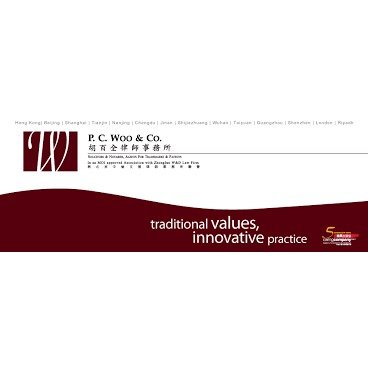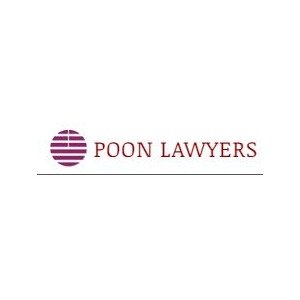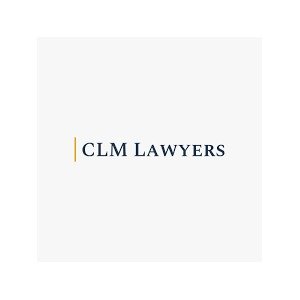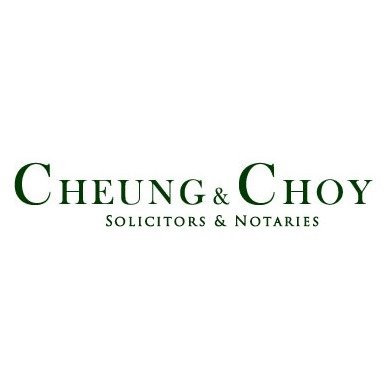Best Commercial Real Estate Lawyers in Central
Share your needs with us, get contacted by law firms.
Free. Takes 2 min.
Free Guide to Hiring a Real Estate Lawyer
List of the best lawyers in Central, Hong Kong
About Commercial Real Estate Law in Central, Hong Kong
Commercial real estate law in Central, Hong Kong, deals with a broad range of activities involving properties used for business purposes. This includes negotiations for leases, sales and purchases, management of office and commercial buildings, and dealings with zoning issues. The laws governing commercial real estate are complex and dynamic, often intersecting with aspects of contract law, company law, dispute resolution, and taxation law.
Why You May Need a Lawyer
There are many circumstances during which you may need legal consultation concerning commercial real estate. Some commonplace scenarios include drafting and negotiating lease contracts, resolving landlord-tenant disputes, understanding zoning regulations, ascertaining environmental regulations and their compliance, handling sales or purchase agreements and tax-related issues. Ensuring legal assistance in these circumstances can help you protect your investment and avoid future legal complications.
Local Laws Overview
The Conveyancing and Property Ordinance (Cap. 219) and the Real Estate Agents Ordinance (Cap. 511) are two primary laws governing commercial real estate in Hong Kong. These laws deal with property ownership, lease agreements, the role of property agents, and real estate transactions. Additionally, laws like the Town Planning Ordinance (Cap. 131) regulate land use and zoning in Central, Hong Kong. Immovable Property Ordinance (Cap. 282) and Building Ordinance (Cap. 123) are also crucial to understanding building standards and safety compliance.
Frequently Asked Questions
1. How are lease agreements regulated in Central, Hong Kong?
Lease agreements are primarily governed by the Conveyancing and Property Ordinance. Leases exceeding three years must be made in writing and registered with Land Registry for validity.
2. Can a landlord terminate a commercial lease agreement prematurely?
This depends on the specific terms of the lease agreement. However, landlords usually have the right to terminate the agreement for reasons such as tenant's failure to pay rent or breach of other terms.
3. What are the zoning regulations in Central, Hong Kong?
Zoning is governed by the Town Planning Ordinance. The Ordinance outlines what type of activities are permitted in different areas and provides a process for seeking changes to the zoning plan.
4. How can disputes arising from commercial property be resolved?
Commercial property disputes are often settled through litigation, mediation, or arbitration, according to the terms specified in the contract. It is advisable to consult a lawyer.
5. What are the possible legal issues associated with buying commercial property in Central, Hong Kong?
Issues can arise related to the conveyance process, title verification, due diligence checks, registration, and compliance with zoning and environmental regulations.
Additional Resources
The Hong Kong Department of Justice and The Law Society of Hong Kong are excellent resources for legal matters concerning real estate. GovHK's website also provides relevant regulatory information and updates. The Lands Department and the Building Department's websites provide extensive information on property valuation, buying and selling, land supply, and building safety.
Next Steps
If you need legal assistance with commercial real estate in Central, Hong Kong, start by identifying your precise needs. Consult with a qualified commercial real estate attorney who is well-versed in local laws. Prepare all relevant documents and provide in-depth information regarding your situation to help your attorney provide the best guidance.
Lawzana helps you find the best lawyers and law firms in Central through a curated and pre-screened list of qualified legal professionals. Our platform offers rankings and detailed profiles of attorneys and law firms, allowing you to compare based on practice areas, including Commercial Real Estate, experience, and client feedback.
Each profile includes a description of the firm's areas of practice, client reviews, team members and partners, year of establishment, spoken languages, office locations, contact information, social media presence, and any published articles or resources. Most firms on our platform speak English and are experienced in both local and international legal matters.
Get a quote from top-rated law firms in Central, Hong Kong — quickly, securely, and without unnecessary hassle.
Disclaimer:
The information provided on this page is for general informational purposes only and does not constitute legal advice. While we strive to ensure the accuracy and relevance of the content, legal information may change over time, and interpretations of the law can vary. You should always consult with a qualified legal professional for advice specific to your situation.
We disclaim all liability for actions taken or not taken based on the content of this page. If you believe any information is incorrect or outdated, please contact us, and we will review and update it where appropriate.
















